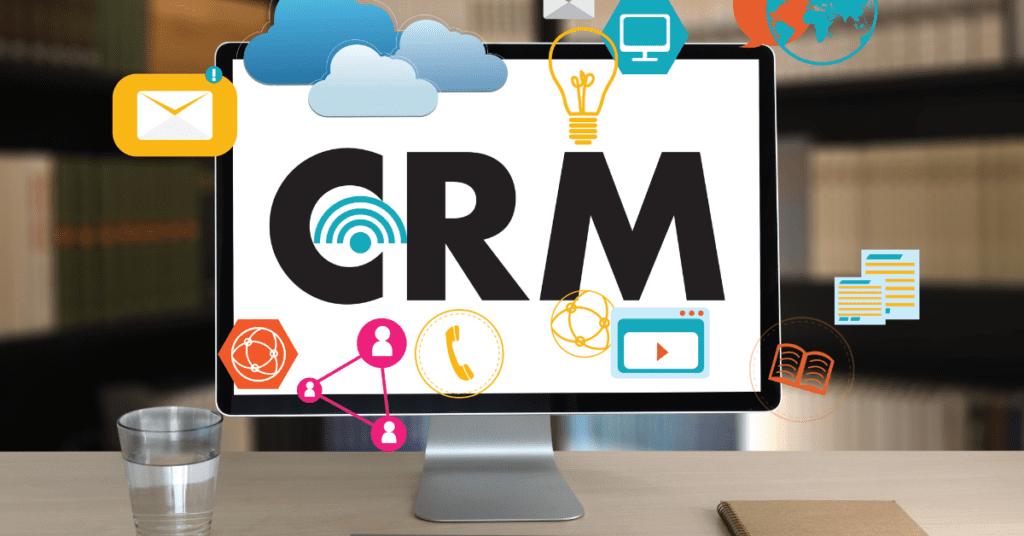Effective CRM Strategies To Maximize Your Business
In today’s competitive business landscape, the heart of a successful enterprise lies in the strength of its client relationships. And for service-based businesses, especially solopreneurs, nurturing these connections is not just a part of the business; it’s the core. But how? Enter your CRM.
A CRM – Customer Relationship Management software – a powerful tool that goes beyond managing sales and contacts. CRMs are about creating lasting relationships, understanding client needs and delivering value that resonates – all with the automation technology that can run in the background while you run your business.
In this post, we’ll explore how effective CRM systems and strategies can transform your client interactions, turning casual contacts into loyal advocates and driving your business towards sustainable growth.

Understanding CRMs and Their Impact
At its core, a Customer Relationship Management (CRM) system is more than just a tool for organizing client information – it’s a comprehensive approach to managing interactions and building deeper connections with your customers.
For small businesses and entrepreneurs, implementing a CRM system and strategy means centralizing client data, tracking interactions and leveraging this information to enhance communication and services. It also means hands-off automation that gives you back the time you always need as a business owner.
The true impact of CRM lies in its ability to provide a 360-degree view of your customers – an incredibly powerful tool for any business owner.
By consolidating and organizing client info – from contact details to purchase history, preferences, and feedback – CRM systems enable you to tailor your marketing and communication strategy to each client’s unique needs and expectations.
This kind of customization not only improves overall client satisfaction but also helps to build a deeper sense of loyalty and trust.
Furthermore, a CRM goes beyond simple transactional relationships.
It allows businesses to analyze trends, predict client needs and proactively offer solutions. In essence, a robust CRM is a key driver in making informed business decisions that align with your clients’ evolving needs, ultimately leading to better client retention, increased sales and overall business growth.
Key Strategies for Strengthening Relationships
Implementing a CRM is more than just adopting a new software system; it’s about strategically enhancing your client interactions.
There are some key CRM strategies that can significantly strengthen your client relationships:
Personalization: CRM systems house detailed information about each client, allowing you to tailor your communication and services. Use this data to address clients by name, recall previous interactions and make recommendations based on their history and preferences. This level of personalization makes clients feel valued and understood.
Consistent Communication: As business owners, we know that regular and meaningful communication is vital in nurturing client relationships.
Customer Relationship Managment tools enable automated yet personalized follow-ups, appointment reminders and updates about your services. Such consistent touch-points keep your brand top-of-mind and demonstrate your commitment to the client.
Feedback and Responsiveness: Use your CRM to gather and manage customer feedback efficiently.
Whether it’s through surveys or direct feedback channels, understanding and responding to your clients’ experiences shows that you value their opinions and are committed to continuously improving your systems.
Segmentation for Targeted Marketing: CRMs allows you to segment your client base on various criteria, such as purchasing behavior, preferences, or demographic details.
This segmentation makes it easy for you to create targeted marketing campaigns that resonate with specific groups, increasing relevance and effectiveness.
Lifecycle Management: Understanding where each client is in their journey with your business helps tailor your approach.
Whether they are a new lead, a repeat customer or at risk of churning, CRM data can guide your strategy to address their specific needs at each stage.
Integrating A CRM Into Your Business Processes
The integration of a CRM system into your business operations should be a thoughtful and strategic process.
Here’s how you can seamlessly incorporate CRM into your daily business routines:
1.Start with Clear Objectives: Define what you want to achieve with your CRM. Whether it’s improving customer engagement, streamlining sales processes, or enhancing lead management, having clear objectives will guide your CRM integration.
2. Choose the Right CRM: Select a CRM that aligns with your business size, needs, and goals. It should be user-friendly, scalable and compatible with your existing tools.
3. Customize as Needed: Most CRM systems offer customization options. Tailor the CRM to fit your specific business processes, from sales pipelines to reporting formats.
4. Train Your Team: Ensure that all team members who will use the CRM are adequately trained. This includes not only technical training but also understanding the importance of CRM in improving client relationships.
5. Integrate with Other Tools: If you use other business tools, such as email marketing software or social media platforms, integrate them with your system for a unified approach to customer management.
6. Regularly Update Data: Keep your CRM data up to date for it to be effective. Regular data maintenance is crucial for accurate reporting, decision-making and strategy implementation.
Measuring Your Success
To gauge the effectiveness of your system’s strategies, it’s important to regularly measure their success.
Here are some important metrics to consider:
- Customer Satisfaction and Feedback: Regularly assess customer satisfaction through surveys and feedback forms. High satisfaction levels can indicate successful CRM implementation.
- Sales Metrics: Monitor sales performance before and after CRM implementation. Look for improvements in sales cycles, conversion rates, and overall revenue.
- Customer Retention Rates: One of the primary goals of CRM is to improve client retention. Higher retention rates can be a strong indicator of effective CRM strategies.
- Engagement Metrics: Track how clients interact with your emails, social media posts, and other communications. Increased engagement can signal successful CRM-driven marketing efforts.
- ROI of CRM Investment: Evaluate the return on investment of your CRM system by comparing the cost of the system against the benefits it brings, such as increased sales or improved operational efficiency.
Effective CRM strategies are pivotal in transforming client relationships and propelling your business forward. Integrating a CRM into your business processes and measuring its success can significantly enhance customer engagement, retention, sales and your overall business performance.
At Confluence Business Solutions, we live and breathe the power of a CRM.
Automation On A Mission is a comprehensive CRM solution designed to support all of the your business building needs. From client data management to multi-step funnel building, Automation On A Mission is your solution.
If you’re interested in learning how AOAM can become the backbone of your business, book a discovery call and let’s get you up and running!

